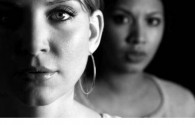Jane Glover
Job description: Re-Unite Development Manager at Commonweal Housing
View organisation website Follow Jane Glover on Twitter
Areas of interest: Housing and homelessness – services for women with complex needs, Domestic abuse, Families and children – including relationships, Substance use, Women involved in the criminal justice system, Mental health and wellbeing, Childhood trauma – including being in care or childhood abuse, Employment and skills, Improving support for women involved in prostitution
Jane Glover's Recent Activity
"Re-Unite is a programme that works to reunite and resettle families when a mother is released from prison.
Jane Dominey and Professor Loraine Gelsthorpe conducted an evaluation spanning three years of Re-Unite South London (2010-2012) and 12 months of the replication of the Re-Unite programme in Birmingham, Gloucestershire, Greater Manchester and Yorkshire (2012).
The researchers found “seven signs of success” and concluded that there is much evidence that Re-Unite is successful in accessing accommodation, establishing effective support, helping the women towards stable lives and facilitating the restoration of families – all of which are factors linked to reduced reoffending.
They went onto to say that “Re-Unite has clearly provided the opportunity for children to return to their mother’s care with additional support at a time of transition and change. For some children, the existence of Re-Unite has certainly prevented them from being taken into care or remaining in care”.
To read the full evaluation visit: http://www.re-unite.org.uk/in-the-news/independent-evaluation-confirms-that-re-unite-works"
Reply To: Childhood trauma and women’s homelessness
"The Re-Unite project focuses specifically on mothers in prison, who will be homeless upon release. This status applies to many women; particularly those serving sentences of more than 13 weeks who lose their tenancies whilst in custody and are often classed as 'intentionally homeless' on their release. With many women we also find that their tenancies have not been correctly 'closed' when they entered custody and they then face unmanageable rent arrears when they are finally released.
91% of children whose mothers are in prison are placed in some sort of formal or informal care while their mother is away. If mothers are unable to find housing on release, these children are left 'in limbo' for even longer periods. Re-Unite therefore exists to liaise with Prison, Probation, Social Services and Housing providers to ensure that women and children are reunited in suitable, stable housing as quickly as possible.
As well as providing one-to-one support to the families, Re-Unite projects set up trusting relationships with housing providers: Housing Associations and private landlords make housing available and we then provide tenants who are appropriately assessed and very well supported. It is a mutually beneficial relationship.
In the last year we have supported 28 women into suitable, safe housing. Twenty-four of those women have been reunited with their children in a family home and four women are in single person accommodation while they work towards regaining care and custody of their children.
There are five organisations currently running Re-Unite projects in South London, Birmingham, Gloucestershire, Yorkshire and Greater Manchester. We are always looking for new organisations to deliver the Re-Unite programme and for housing providers to get involved. For more information visit our website www.Re-Unite.org.uk"
Reply To: Women, homelessness and the criminal justice system
"Re-Unite is a UK based housing project. We provide a package of support and access to housing for mothers that have been separated from their children whilst serving a prison sentence.
The founding partners of the project Commonweal Housing, Housing for Women and Women in Prison noticed that there was a real need to help these mothers, as there is no provision of family housing on release for mothers that are not in custody of their children. This issue causes a catch 22 situation because without suitable family accommodation it is much more difficult for the mothers to regain custody of their children.
We currently work with women that have a reasonable prospect of being re-united with their children, either on their day of release or for ours Mothers' Programme within 6 months of release. We work with the mothers, various support, and governmental agencies to ensure that the women and children are re-united successfully in safe and secure accommodation that allows them to prepare for fully independent living up to a year after they are released from prison.
For more information see: http://www.re-unite.org.uk/"
Reply To: Families and children




